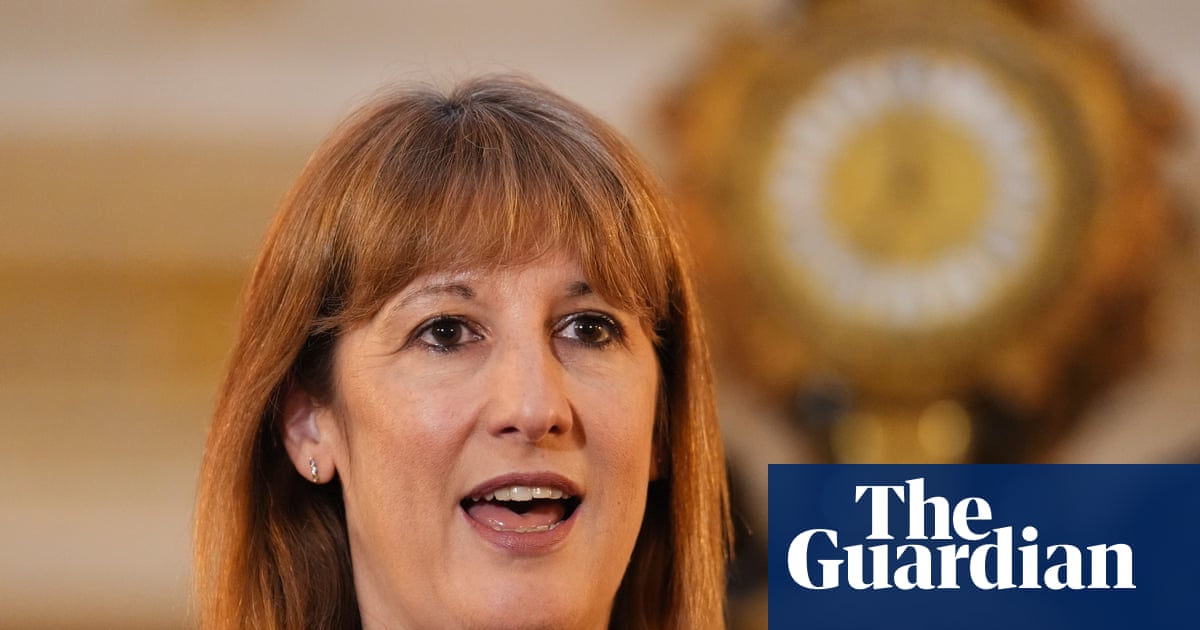Senate Republicans race to resolve tax and health issues in Trump's tax bill to meet 4 July deadline
Republicans in Congress are scrambling to resolve nettlesome tax and health care provisions in their sweeping tax-cut and spending bill as Donald Trump presses them to pass the legislation by his 4 July deadline (which is … next week).
Trump plans to promote the package - which nonpartisan analysts say will add about $3tn to the federal government’s $36.2tn in debt - at an afternoon White House event that will feature truck drivers, firefighters, ranchers and other workers who the administration says would benefit from the bill.
But Senate Republicans have yet to produce their version of their legislation ahead of a possible weekend vote, and the overall shape of the bill appeared more uncertain after a nonpartisan referee ruled that several healthcare provisions violated the complex process Republicans are invoking to bypass Democratic opposition.
Those elements collectively represented more than $250bn in health care cuts, according to Democratic senator Ron Wyden of Oregon. Democrats have lined up against the bill, portraying it as a wasteful giveaway to the wealthiest Americans.
Senate Republicans have spent the last several weeks revising a bill that passed the House by one vote last month. It is unclear whether the GOP will be able to rework the bill to comply with the complex budget rules, as they have already done with some elements, or seek to override the decision by the Senate parliamentarian.
Senator Rick Scott, a Florida Republican, told reporters:
It’s pretty frustrating. But you know, what we’ve got to do is work through this process and come up with something that you know, fulfills the Trump agenda and also has fiscal sanity. Look, I believe this bill is going to pass. I know there’s a lot of work left to do.
A source familiar with the situation told Reuters Senate Republicans still had a path forward and described the 4 July deadline as achievable.
Republicans remain at odds over several provisions - notably a proposed tax break for state and local tax payments and a tax on health care providers that some states use to boost the federal government’s contribution to the Medicaid health plan.
The parliamentarian also flagged provisions that would deny student aid and Medicaid health coverage to some immigrants, as well as a provision that would prohibit Medicaid funding for transgender medical care.
Lawmakers a half-century ago decided that the Senate parliamentarian, currently Elizabeth MacDonough, would hold the power to determine what policies they can enact through “budget reconciliation,” the process that Republicans are using now to bypass the chamber’s “filibuster” rule that requires 60 of the 100 members to agree on most legislation.
Republican senator Tommy Tuberville of Alabama wrote that she should be fired.
Her job is not to push a woke agenda. Tuberville wrote on social media.
Others, notably Senate majority leader John Thune, have said they will not to overturn her rulings.
Key events Show key events only Please turn on JavaScript to use this feature
Trump lavished praise on his budget bill during remarks at the White House on Thursday and urged Republican lawmakers to get behind it.
“We don’t want to have grandstanders,” he said shortly before wrapping up the event.
The president claimed the bill would offer the largest tax cut in US history while strengthening Medicaid and Social Security. The legislation will make the huge tax cuts established in 2017 permanent, and ultimately give the greatest cuts to the wealthiest Americans. The version currently in the US Senate would make historic cuts to Medicaid.
Donald Trump said that the federal government will hire 3,000 new border patrol officers and 10,000 Ice agents with his tax and spending bill, describing it as “the single most important piece of border legislation ever to cross the floor of Congress.”
He pledged to increase deportations to at least 1 million people a year as part of his administration’s immigration crackdown, “fully fund the final sections” of the border wall, and impose a remittance tax on money sent back to foreign countries.
Donald Trump told an audience at the White House that he signed an agreement with China related to trade but he did not specify what he was talking about.
Donald Trump is holding an event celebrating his tax and spending bill at the White House – despite ongoing opposition to key parts of the legislation and the Senate parliamentarian rejecting Medicaid cuts earlier today.
We’ll bring you key lines as we get them.
The day so far
-
Donald Trump has claimed, without evidence, that “the Democrats” leaked an early intelligence assessment that found US strikes on Iran’s nuclear sites were less effective than has been touted by the president and his administration and only set Tehran’s nuclear program back by months, and called for prosecutions. The report sent the Trump administration on the defensive today, with officials insisting that the strikes were a huge success that “obliterated” Iran’s nuclear capabilities and attacking the media for coverage of the report.
-
Denying further reports that Iran’s stockpile of uranium was not concentrated in Fordow, one of its two main enrichment sites, at the time of last weekend’s attack, and its highly enriched uranium stockpile remains largely intact, defense secretary Pete Hegseth said he wasn’t aware of any intelligence to suggest that Iran had moved the highly enriched uranium from any of the three nuclear sites the US struck, and Trump also said, without evidence, that “nothing was taken out of the facility” ahead of the strikes. White House press secretary also said there was “no indication” that the uranium had been moved.
-
Elizabeth MacDonough, the parliamentarian who enforces the Senate’s rules, rejected a slew of major provisions in Trump’s “big, beautiful bill”, sending GOP leaders into a frenzy to try to salvage the legislation before next week’s 4 July deadline. One senator, Tommy Tuberville of Alabama, even called for her to be removed from the job. Around the same time, Senate majority leader John Thune told reporters he would not attempt to overrule the parliamentarian with a simple-majority vote on the floor.
-
The supreme court’s three liberal justices - Sonia Sotomayor, Elena Kagan and Ketanji Brown Jackson – dissented from the majority in today’s ruling that paves the way for South Carolina (where the case emerged from) and other states to kick Planned Parenthood out of its Medicaid program over its status as a reproductive healthcare provider that includes abortion services. Read our story here. The supreme court will issue the final opinions of its term tomorrow.
-
Trump has not decided on a replacement for Federal Reserve chair Jerome Powell and a decision isn’t imminent, a person familiar with the White House’s deliberations told Reuters. It comes after the dollar dropped overnight and investors, also reacting to weaker economic data, increased their bets on Fed rate cuts this year after a Wall Street Journal story said Trump was considering naming Powell’s replacement early in hopes that person could have immediate influence convincing the central bank to lower interest rates as the president has demanded.
-
Embattled New York City mayor Eric Adams launched his independent campaign seeking re-election. Since progressive Zohran Mamdani’s victory in the Democratic primary yesterday, reports have begun to swirl that NYC business execs are now feverishly organizing around the incumbent Adams, giving his struggling re-election bid a new lease of life, in an effort to keep the democratic socialist out of City Hall in November.
-
Robert F Kennedy Jr’s reconstituted vaccine advisory panel recommended against seasonal influenza vaccines containing specific preservative thimerosal – a change likely to send shock through the global medical and scientific community and possibly impact future vaccine availability. Separately, the panel also recommended a new treatment to prevent respiratory syncytial virus (RSV) in infants.
-
Secretary of state Marco Rubio announced a new visa restriction policy aimed at stopping the flow of fentanyl and other illicit drugs into the United States. “Imposing visa restrictions on drug traffickers, their family members, and close personal and business associates will not only prevent them from entering the United States, but it will serve as a deterrent for continued illicit activities,” Rubio said in a statement issued by the state department.
-
JB Pritzker launched his reelection campaign for a third term as Democratic governor of Illinois, amid speculation of a future run for higher office.
Trump blames intelligence leak on Democrats and calls for prosecutions
Donald Trump has claimed, without evidence, that “the Democrats” leaked an early intelligence assessment that found US strikes on Iran’s nuclear sites were less effective than has been touted by the president and his administration and only set Tehran’s nuclear program back by months, and called for prosecutions.
Trump wrote on his Truth Social platform:
The Democrats are the ones who leaked the information on the PERFECT FLIGHT to the Nuclear Sites in Iran. They should be prosecuted!
The initial classified US report produced by the Defense Intelligence Agency – the intelligence arm of the Pentagon – concluded that Trump’s strikes on Iran’s nuclear facilities over the weekend did not destroy two of the sites, and found that key components of Iran’s nuclear program, including centrifuges, were capable of being restarted within months.
It’s sent the Trump administration on the defensive today, with officials insisting that the strikes “obliterated” Iran’s nuclear capabilities and attacking the media for coverage of the report.
Defense secretary Pete Hegseth also said he wasn’t aware of any intelligence to suggest that Iran had moved the highly enriched uranium from any of the three nuclear sites the US struck, and Trump also said, without evidence, that “nothing was taken out of the facility” ahead of the strikes. White House press secretary also said there was “no indication” that the uranium had been moved.
RFK Jr’s vaccine panel recommends new RSV treatment for infants

Jessica Glenza
Robert F Kennedy Jr’s reconstituted vaccine advisory panel recommended a new treatment to prevent respiratory syncytial virus (RSV) in infants.
The treatment, a new monoclonal antibody called clesrovimab, which will be sold under the brand name Enflonsia by Merck, was recommended by the powerful committee after being approved by the Food and Drug Administration (FDA) roughly two weeks ago.
The tortured vote took place a day late and after rounds of questions from the panel’s seven new members – all ideological allies of Trump’s health secretary, who views “overmedicalization” as one of the greatest threats to American children.
“I think we need to ask ourselves what the parent would say given this data,” said Dr Retsef Levi, a Massachusetts Institute of Technology professor of operations management, who over hours of hearings has proven to be an outspoken skeptic of the medications under review. He said he would be “concerned” and ultimately voted against recommending the monoclonal antibody.
Trump decision on Fed not imminent - Reuters
Donald Trump has not decided on a replacement for Federal Reserve chair Jerome Powell and a decision isn’t imminent, a person familiar with the White House’s deliberations has told Reuters.
It comes after the dollar dropped overnight and investors, also reacting to weaker economic data, increased their bets on Fed rate cuts this year after a Wall Street Journal story said Trump was considering naming Powell’s replacement early in hopes that person could have immediate influence convincing the central bank to lower interest rates as the president has demanded.
The White House declined to comment, referring to the statements Trump has made publicly on the topic. Those have included regular beratings of Powell as a “major loser” and “stupid” for not cutting rates, a 6 June statement that he would name Powell’s replacement “very soon,” resignation that a supreme court decision meant he could not fire Powell outright, and a statement this week that he had narrowed the list of replacements to “three or four”.
Potential nominees include former Fed governor Kevin Warsh, who has close ties to the Trump Organization and was almost named central bank chief in the president’s first term in the White House, as well as Kevin Hassett, who is the director of the White House’s National Economic Council, current treasury secretary Scott Bessent, and current Fed governor Christopher Waller, according to the person familiar with the deliberations.
But the person, who was not authorized to speak publicly about the matter, downplayed how fast Trump might act.
Powell’s term as Fed chief does not end until next May, and the recent supreme court decision appeared to insulate him from being fired over a policy dispute - a fact that could also limit Trump’s ability to reshape the central bank before his second and final term ends in January 2029.
However, an early announcement of the next Fed chair could allow whoever Trump picks to influence expectations about the path for interest rates, which could undermine Powell during the final months of his term.
The Fed has repeatedly stated that it makes decisions based on economic data rather than on political interventions. It added that it had kept rates on hold in June amid uncertainty over Trump’s controversial tariff plans, which have caused the central bank to raise its projections for inflation.
RFK Jr’s new vaccine panel votes against preservative in flu shots in shock move

Jessica Glenza
A critical federal vaccine panel has recommended against seasonal influenza vaccines containing a specific preservative – a change likely to send shock through the global medical and scientific community and possibly impact future vaccine availability.
The panel was unilaterally remade by health secretary Robert F Kennedy Jr, a vaccine skeptic who has urged against the use of thimerosal despite a lack of evidence of real-world harm.
Across three votes, members voted in favor of restricting thimerosal in seasonal influenza vaccines across all age groups – with five in favor of the restriction, one abstention and one vote against.
“The risk from influenza is so much greater than the nonexistent – as far as we know – risk from thimerosal,” said Dr Cody Meissner, a panel member and professor of pediatrics at Dartmouth’s Geisel School of Medicine who was the lone “no” vote. “I would hate for a person not to receive the influenza vaccine because the only availability preparation contains thimerosal – I find that very hard to justify.”
The panel, formally called the Advisory Committee for Immunization Practices (ACIP) of the Centers for Disease Control and Prevention (CDC), is a critical link in the vaccine distribution pipeline – informing health insurers and clinicians alike about which vaccines to give patients.
Kennedy fired all 17 former members of the panel in June, citing conflicts of interest, and appointed eight new members, all of whom are ideological allies of the secretary.
Rather than vote on an agenda that had once included seasonal recommendations for Covid-19 and the vaccine against human papilloma virus (HPV), ACIP added the controversial focus of thimerosal in vaccines. The panel affirmed that the influenza vaccine is recommended for Americans older than six months.
Although multiple studies have found no real-world harm, the preservative has been a talking point of anti-vaccine advocates for decades. Multiple representatives of physicians associations urged the panel to reject the recommendation against thimerosal in the meeting.
Thimerosal is used in about 5% of multidose seasonal influenza vials, and is known to be more cost effective than single-dose formulations. It is unclear how the vote will impact flu vaccine availability before the upcoming flu season, particularly for clinics that rely on such formulations.
Thimerosal has been used as a preservative in vaccines since before the second world war. In the early 2000s, thimerosal was removed from all routine pediatric and most adult vaccines as a precautionary measure – a decision that was criticized by experts who argued it sent mixed messages about a preservative that had not been found to cause harm. The issue has since been considered settled by mainstream medicine.
US announces new fentanyl-related visa restriction policy
Secretary of state Marco Rubio has announced a new visa restriction policy aimed at stopping the flow of fentanyl and other illicit drugs into the United States.
“Imposing visa restrictions on drug traffickers, their family members, and close personal and business associates will not only prevent them from entering the United States, but it will serve as a deterrent for continued illicit activities,” Rubio said in a statement issued by the state department.

 2 months ago
69
2 months ago
69

















































